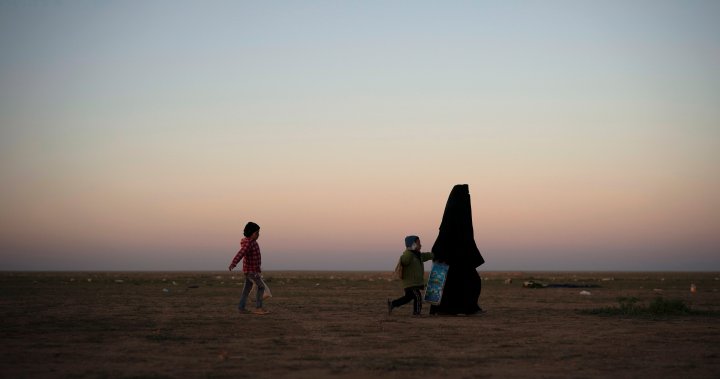The Alberta court approved a terrorism peace bond for Aimee Lucia Vasconez, an Edmonton woman who federal prosecutors allege was married to two ISIS fighters and sought military training. While she does not face any criminal charges, the court ordered her to live under various restrictions for the next 12 months. Vasconez was believed to have lived in ISIS-held territory, requested and received approval for military training, and was captured in Syria in 2019. Upon her return to Canada in 2023, she was arrested by the RCMP, but instead of charging her, the Crown applied for a terrorism peace bond in the name of public safety.
Vasconez was released to live with her mother in Edmonton under conditions that included participating in a de-radicalization program and not driving a car. Two other Edmonton women, Helena Carson and Dina Kalouti, are also scheduled to face similar peace bond hearings in July. Peace bonds have become Canada’s most common response to threats posed by women returning from ISIS. While leaving the country to participate in terrorism is illegal, Canada has charged very few of its ISIS women who have returned, opting for peace bonds instead in most cases.
At the time Vasconez was captured in Syria, a woman matching her description told CNN that her husband had ordered her to join him and she was required to obey as his wife. She lived in Raqqa, the ISIS capital, and eventually married a Canadian who was also killed. Vasconez was reportedly held at the Al-Hawl camp, a detention facility for ISIS families captured by the Syrian Democratic Forces. The Canadian Security Intelligence Service provided advice on security threats posed by women returning from Syria, collaborating with the RCMP and Public Prosecution Service of Canada on charges and peace bonds to mitigate potential threats to national security.
The CSIS annual report stated that several key ISIS figures were killed in 2023, but the group’s ability to inspire attacks remains strong. An alleged ISIS supporter in Surrey, B.C., was arrested for a stabbing attack on a bus and charged with terrorism. CSIS predicts that such attacks will likely continue at an unpredictable pace in 2024 based on world events, ISIS propaganda, and individual motivations. Canada has brought back Canadian children from ISIS detainee camps, with only a small number of ISIS women being charged upon their return.
Despite the limited charges against ISIS women returning to Canada, peace bonds have become a common tool for addressing the potential threats they may pose. The focus is on reducing the risk of terrorism while providing support and resources for those who have returned from ISIS territory. Collaboration between various Canadian security agencies is crucial in assessing the security threats posed by returning individuals and determining the most appropriate responses. As Canada continues to navigate the complexities of addressing the challenges posed by those returning from ISIS, it remains vigilant in mitigating risks to national security and protecting its citizens.


